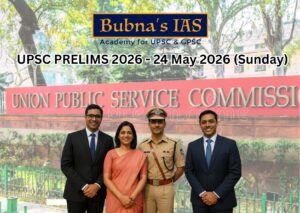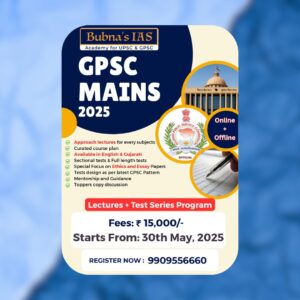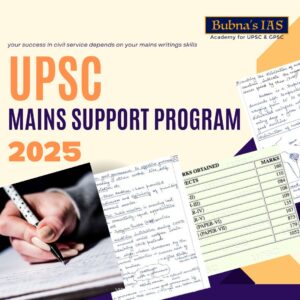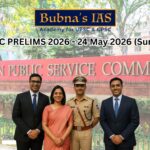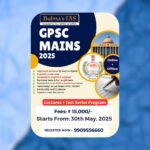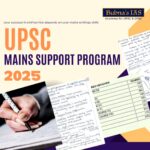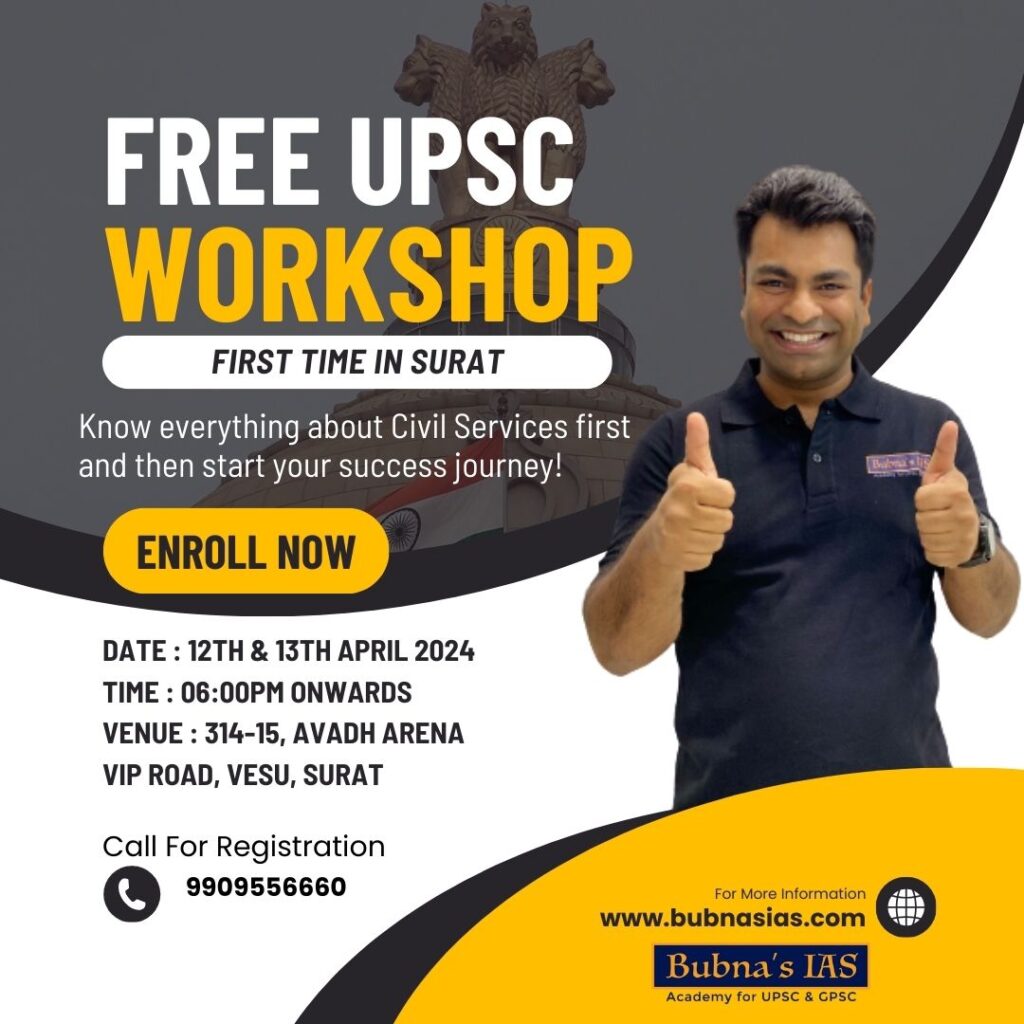To become a civil service officer, you must clear all the stages of UPSC exams. We hear the students worrying about the Preliminary and Main exams where their knowledge is tested on papers. However, they should be concerned about the test of their skills live in the UPSC interview. It may seem unsafe, but with the right preparation, you can ace the interview round of UPSC exams. The first step in the interview round is giving an amazing introduction. So, in the blog, we discussed a few UPSC interview tips to help you prepare the best introduction.
Why is introduction important in UPSC interview
Being a UPSC officer, your communication skills, attentiveness, and stress management are of great importance. Therefore, the UPSC exams include a personal interview round with five-panel members. The panel members include a chairperson from UPSC and four experts from varying fields. These members evaluate your skills, personality, critical thinking, and ability to handle stressful situations. It is the final test to qualify you to become a civil service officer.
We all know the age-old saying, first impression is the last impression. Similarly, your first impression of the panel members sets the stage for how your interview will go. The introduction gives the panel member a glimpse of your personality and knowledge. It also helps them lead the conversation based on what you introduce yourself with. So, preparing your introduction is very important to crack your UPSC interview round.
UPSC interview Tips for introducing yourself
Following are a few helpful UPSC interview tips from Bubna’s IAS, one of the trusted UPSC coaches in Surat.
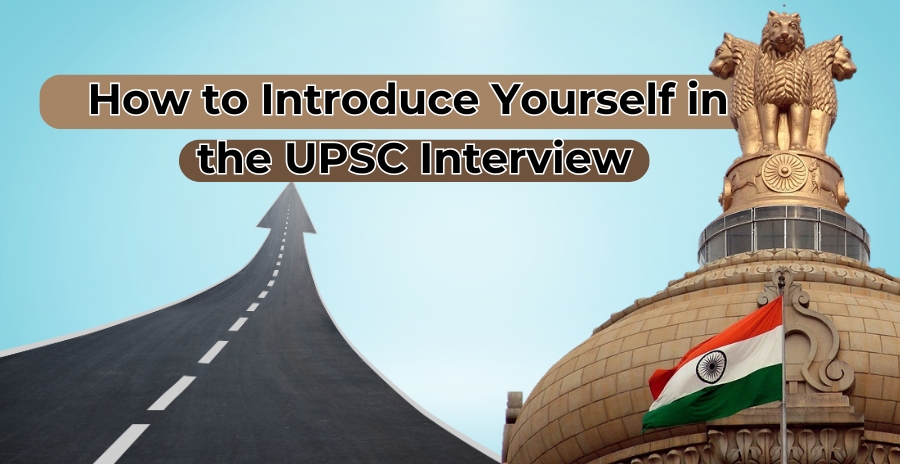
Structure your introduction
A well-structured introduction is important to make an impact in a limited time. The introduction should give a glimpse of who you are and what your personality revolves around. Start with a polite greeting, followed by you stating your name and where you live. The area you live in helps the panel members form further questions to test your knowledge and gauge your personality. Now, talk about your qualifications. Keep it concise, as they can ask additional questions later in the interview. To finish the introduction, discuss a few of your hobbies and interests to make it a little personal.
All these allow the panel members to understand your skills and knowledge. Therefore, they will ask questions regarding areas of interest you’ll be comfortable discussing.
Could you keep it simple and precise?
The interview round gives you limited time. Thus, keep your introduction short and simple. Ideally, it should be ranging in between 1 – 2 minutes. Therefore, you must keep it precise and concise. Remember, they have your detailed profile, including your name, demographic information, and educational qualifications. So, it would help if you focused on creating an introduction that adds a personal element. It could be adding a few good things you did or your hobbies that showcase your hobbies.
Confidence is the key
The civil officer is responsible for the safety and growth of the area under their supervision. Therefore, you must be confident to keep your point, communicate, and stand with them. Thus, walk in the room with confidence and not slouched shoulders. Talk in the UPSC interview with a firm yet polite voice: not rude or babbling. Your non-verbal communication, like your posture and the way you sit and meet the panel members’ eyes, greatly impacts the impression of the panel members. So, hone your non-verbal communication skills as well.
Keep your introduction genuine
The UPSC interview panel is made with members of UPSC or experts in diverse fields. Therefore, avoid adding fluff, false facts, or achievements in your introduction. It will get you caught and affect your reputation in the interview. Instead, focus on keeping your introduction simple and genuine. It helps you prepare better for any questions they might ask you. You can tackle any tricky questions without fumbling.
Prepare for the basic follow-up questions
The UPSC interview is just the beginning. The panel members will ask you follow-up questions based on your introduction. So, structure your UPSC interview introduction and prepare certain questions that the panel members might ask. A few examples of such questions can be relating to the town you live in and the problems the people in your city face, how you can help them, how your hobbies are helpful, your qualifications, and more. Therefore, be honest with your introduction as they will counter-question you to know your skills and authenticity.
Familiarize yourself with the panel members
Knowing the panel members can help you familiarize yourself with their faces and personalities. Although it may not be easy, you can still prepare for the questions they ask from the interview videos and prepare to face them.
Bubna’s IAS is one of the best UPSC coaches in Surat who helps students prepare for the exams. We pay close attention to how we can help you prepare for the interview with mock interviews to help you refine your introduction and prepare to handle the pressure of the interview. Please book your free demo class to learn more about how we work and help your students prepare for civil service exams like UPSC and GPSC.
Conclusion
The UPSC interview round is the final test for you to become a civil service officer. While you must prepare for all the complex questions and stressful situations, you must also focus on making a simple, precise, and effective introduction. Your introduction for the UPSC interview must include a polite greeting, your name and the town you reside in, your education qualification, and a few of your hobbies. It must be on 1 – 2 minutes long.
Your UPSC interview introduction gives the panel a glimpse of your knowledge and personality. One of the most important things to remember while framing your introduction is to be genuine and authentic. The interview panel is made up of experts who can identify your fluff right away. So, it would help if you kept your introduction simple, authentic, and precise. Additionally, please pay close attention to your non-verbal communication, as it is one of the indicators of your confidence Bubna’s IAS can help you prepare and practice your introduction to help you form a great first impression in the UPSC interview.
FAQ
Should I mention the Mains exam in the UPSC interview round?
Whether you want to use your Mains exam details in your UPSC interview is up to you. If the subjects of your main exam are related to your education or specializations, you can definitely add them to your introduction.
What topics should I avoid in the UPSC interview?
You should avoid giving long answers with fluff and boasting. Additionally, avoid giving controversial answers in the interview and answer what you have been asked.
How does Bubna’s IAS help me prepare for the UPSC interview?
Bubna’s IAS is dedicated to helping our students prepare for all the stages of UPSC exams. Therefore, we help our students prepare an introduction and give some UPSC interview tips so they can navigate it easily. We conduct mock interviews to help the student experience what it’s like in a real interview and improve their performance from the feedback from the expert panel.
Is non-verbal communication important in the UPSC interview round?
Yes! Non-verbal communication is one of the most important aspects of UPSC interviews. The panel expert gauges your confidence and nature with non-verbal communication, such as your posture, tone of voice, fumbling fingers and voice, eye contact, and more.

